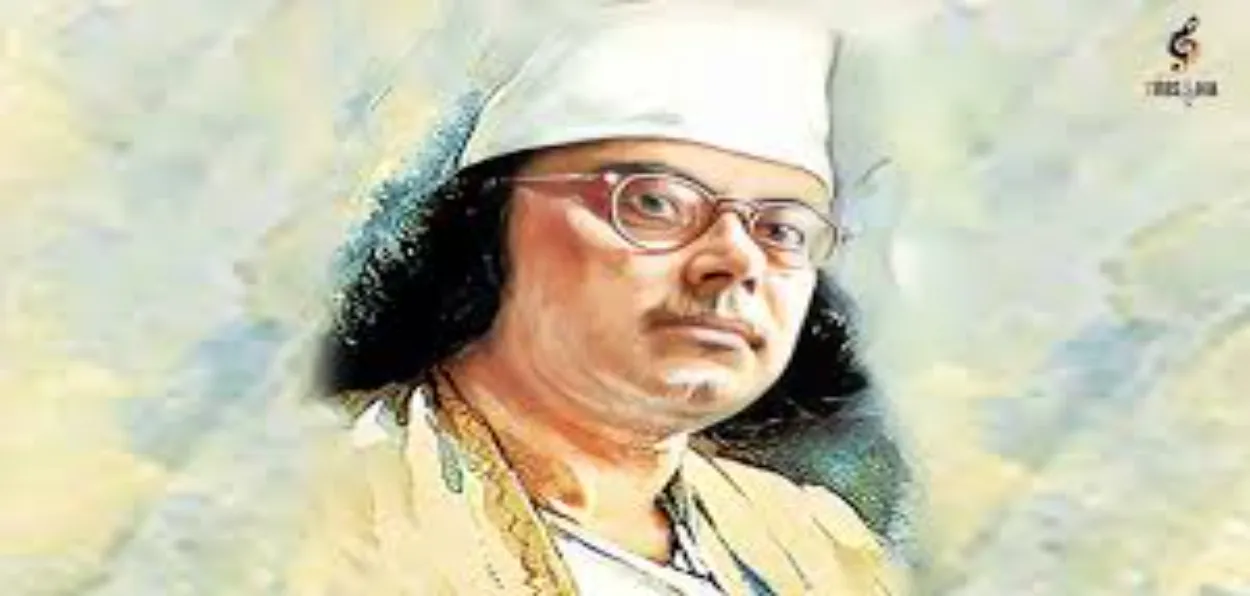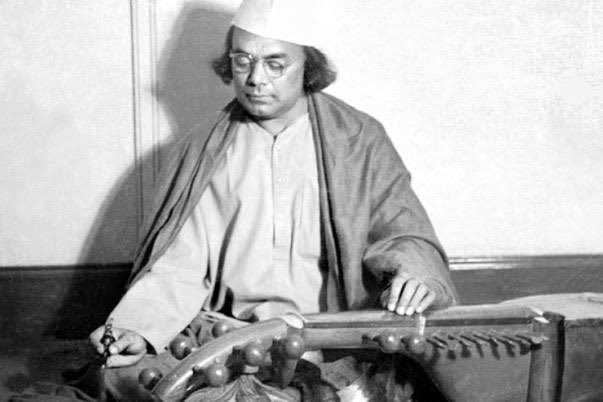
Amir Suhail Wani
Kazi Nazrul Islam, often referred to as a "Rebel Poet," was a remarkable Bengali poet, writer, composer, and revolutionary who played a pivotal role in India's struggle for independence.
His works are imbued with themes of patriotism, rebellion, and humanism, making him one of the most influential figures in modern Indian literature. Known for his passion for justice, equality, and freedom, Nazrul’s poetry captures the spirit of the Indian independence movement and became an emblem of national pride and resistance.
Born on May 24, 1899, in Churulia, a small village in Bengal (present-day Bangladesh), Nazrul’s life was marked by hardship, struggle, and an unyielding pursuit of justice. From an early age, he was exposed to the complexities of societal injustice, oppression, and colonial rule, which deeply influenced his worldview and poetic voice. He quickly rose to prominence in the literary world for his fearless and unapologetic style, which resonated with the masses.
Kazi Nazrul Islam’s works are often characterized by their powerful and passionate advocacy for the freedom and dignity of the oppressed. He used his pen as a weapon in the battle against British colonial rule, expressing his anger and frustration at the injustice faced by Indians.
His poetry inspired many, and his songs of resistance and revolution ignited the hearts of countless freedom fighters.
His commitment to the nationalist cause is evident in his use of fiery, revolutionary language. Nazrul’s poetry not only questioned the authority of colonial rulers but also challenged societal norms and the caste system, advocating for a society based on equality and justice.
His famous compositions, such as “Bidrohi” (The Rebel) and “Chal, Chal, Chal” (March Forward), conveyed an indomitable spirit of defiance and determination.
Nazrul's patriotism was not confined to his words alone; his actions also reflected his unwavering commitment to the nation’s freedom. He participated in protests against British rule and was arrested for his involvement in revolutionary activities. It was during his imprisonment that his creativity flourished, producing some of his most iconic works, which continue to inspire generations.
Nazrul’s poetry ranges from the exuberantly nationalistic to the deeply humanistic, all underpinned by his love for his motherland and his desire for a free and fair society. Some of his most significant works, illustrating his patriotic fervour, include:
 Kazi Nazrul Islam's tryst with music
Kazi Nazrul Islam's tryst with music
"Bidrohi" (The Rebel)
One of Nazrul's most famous poems, "Bidrohi" is a powerful expression of defiance and rebellion against oppression. In this poem, Nazrul presents himself as a defiant force, unyielding in the face of tyranny.
"I am the rebel, the fire in the sky,
I am the storm that shatters the calm.
I am the roar of the thunder, the crash of the waves,
I am the wrath of the wind, sweeping away the weak." (Couplet Translated from Bengali)
This verse exudes power and energy, symbolizing the poet’s unshakable resolve to challenge authority and fight for freedom.
"Chal Chal Chal" (March Forward)
This is another iconic song that calls for national unity and collective action. The poem urges people to march forward, leaving behind divisions, and to unite for the common cause of India’s liberation from British rule.
"March forward, brothers, march forward,
For the freedom of the country, for the salvation of the people.
Let the shackles break, let the sky be lit,
March, march forward, to the call of independence." (Couplet translated from Bengali)
These lines echo the spirit of nationalism and the determination to overcome all obstacles to freedom.
"Bolos, Bolo, Bolo" (Speak, Speak, Speak)
In this poem, Nazrul calls for the awakening of the masses, urging them to raise their voices against tyranny and injustice. It emphasizes the importance of speech and action in the fight for liberation.
"Speak, speak, speak with strength,
Let your voice be the weapon,
Let it shake the very foundations of the unjust rule." (Couplet translated from Bengali)
This verse calls for collective action through unity of voice and purpose.
"Sarbojanin (Universal)"
Nazrul often spoke about a world free of divisions, and this poem is an excellent example of his inclusive vision. He imagined a world where all people, irrespective of caste, creed, or religion, are united in their common humanity.
"Let there be no more division, no more pain,
Let the light of love shine through every heart,
Let the cries of the oppressed be heard by all,
For all men are brothers, and all lands are one." (Couplet translated from Bengali)
Nazrul’s idea of a united, egalitarian society is reflected here, where patriotism is not about borders, but about the common human spirit.
Kazi Nazrul Islam's literary genius and unwavering patriotism have earned him a permanent place in the annals of India's independence movement. His poetry, music, and songs galvanized the Indian masses to fight for independence and resist oppression. As a revolutionary poet, he combined passionate patriotism with profound humanism, making him a beloved figure not only in India but also in Bangladesh, where he is considered a national poet.
ALSO READ: Love is natural; hatred manufactured: actor Kumud Mishra
Nazrul’s legacy continues to inspire those who believe in justice, equality, and the power of the human spirit. His verses are timeless, resonating with the same vigour and courage they did during the freedom struggle, reminding us of the importance of standing up for what is right, no matter the cost.
